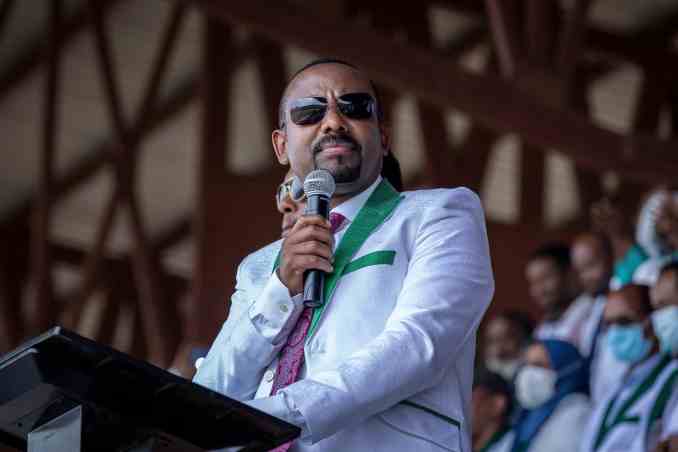

Last updated on September 11th, 2021 at 07:58 am
Ethiopia was voting on Monday in the greatest electoral test yet for Prime Minister Abiy Ahmed as war and logistical issues meant ballots wouldn’t be cast in more than 100 constituencies of the 547 across the country. Due to the pandemic, the elections got delayed which were supposed to happen last year.
Abiy Ahmed rose to the power in 2018 with decades of authoritarian rule and receiving a Nobel Peace Prize the following year. People hope for a peaceful Ethiopia because that is the greatest thing that is needed.
Abiy Ahmed’s ruling Prosperity Party was formed in 2019 by merging groups that made up the previous ruling coalition and now is widely expected to cement its hold on power. The party that wins a majority of seats in the House of Peoples’ Representatives will form the next government.
READMORE: Morocco to receive $450 mn in loan from World Bank to boost resilience
Although, groups from the opposition party accused Ethiopia’s ruling party of harassment, manipulation, and threats of violence that echo abuses of the past. They came on the road to boycott elections and prevent campaigning in several parts of the country. Not only within the country but on an international level too Abiy is facing growing rage from international bodies over the war in Ethiopia’s Tigray region. It was sparked because Tigray’s now-fugitive leaders objected to Ethiopia postponing the election last year while citing COVID-19.
Long lines of voters were seen in some parts of the capital, Addis Ababa, while security was stepped up across Africa’s second-most populous country. Military vehicles were parked in key locations in the capital. More than 37 million Ethiopians were expected to vote.
International concern has been growing about the election. The U.S. has said it is “gravely concerned about the environment under which these upcoming elections are to be held,” and the European Union said it will not observe the vote after its requests to import communications equipment were denied.
The United Nations secretary-general has noted the “challenging” environment and warned against acts of violence. In response, Ethiopia said external observers “are neither essential nor necessary to certify the credibility of an election,” although it has since welcomed observers deployed by the African Union.
The incessant rains have caused flooding in Durban and its neighboring areas. It has disrupted several core areas, with a…
Cross-border activity suffered vast disruption when the new ban started at midnight Thursday with its direct impact on border checkpoints…
South African Bank fined R700,000 after determining the institution misrepresented a credit product as an investment opportunity. Following its December…
EA Sports shows that Toronto Maple Leafs will stop their 58-year title wait by beating the Colorado Avalanche in seven…
Pope Francis, the first Latin American pope of the Roman Catholic Church, passed away in the morning of his 88th…
You want to pick a good film for weekend relaxation? Netflix South Africa provides customers with a wide range of…
This website uses cookies.